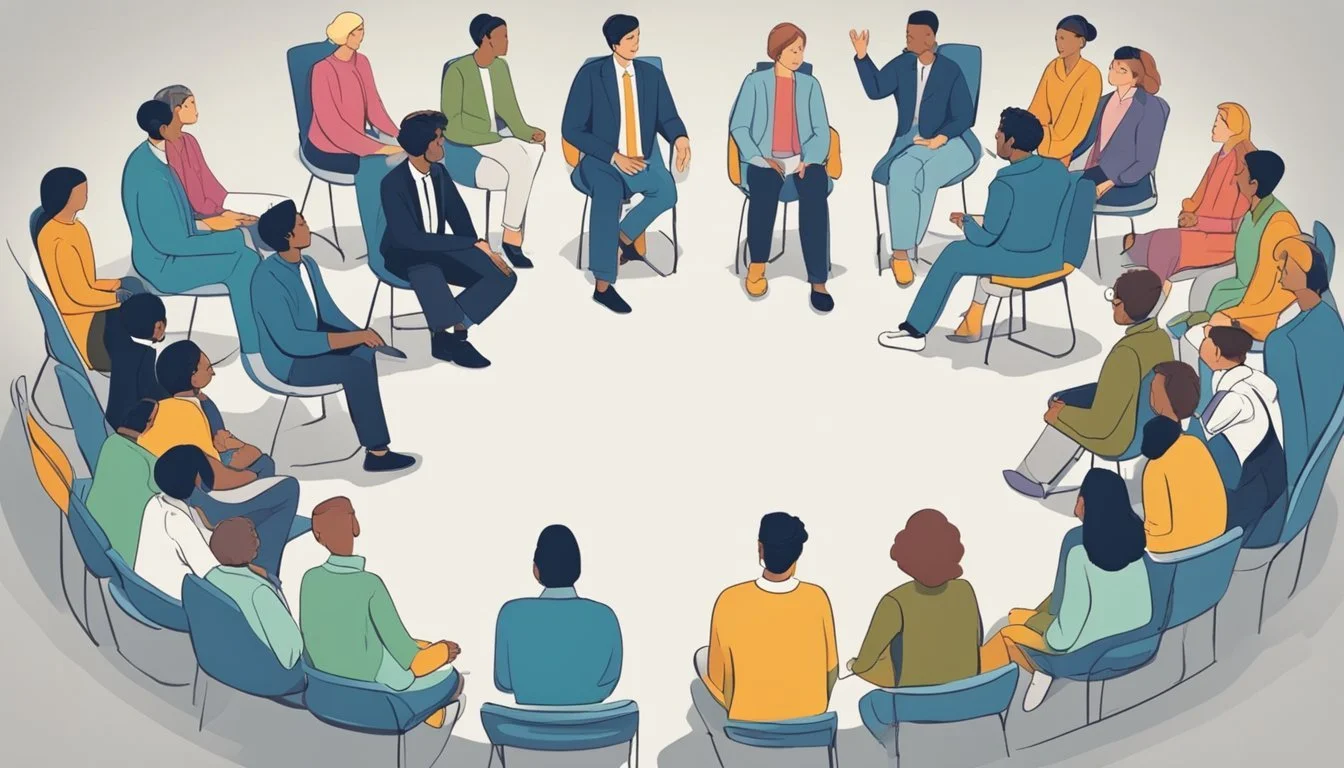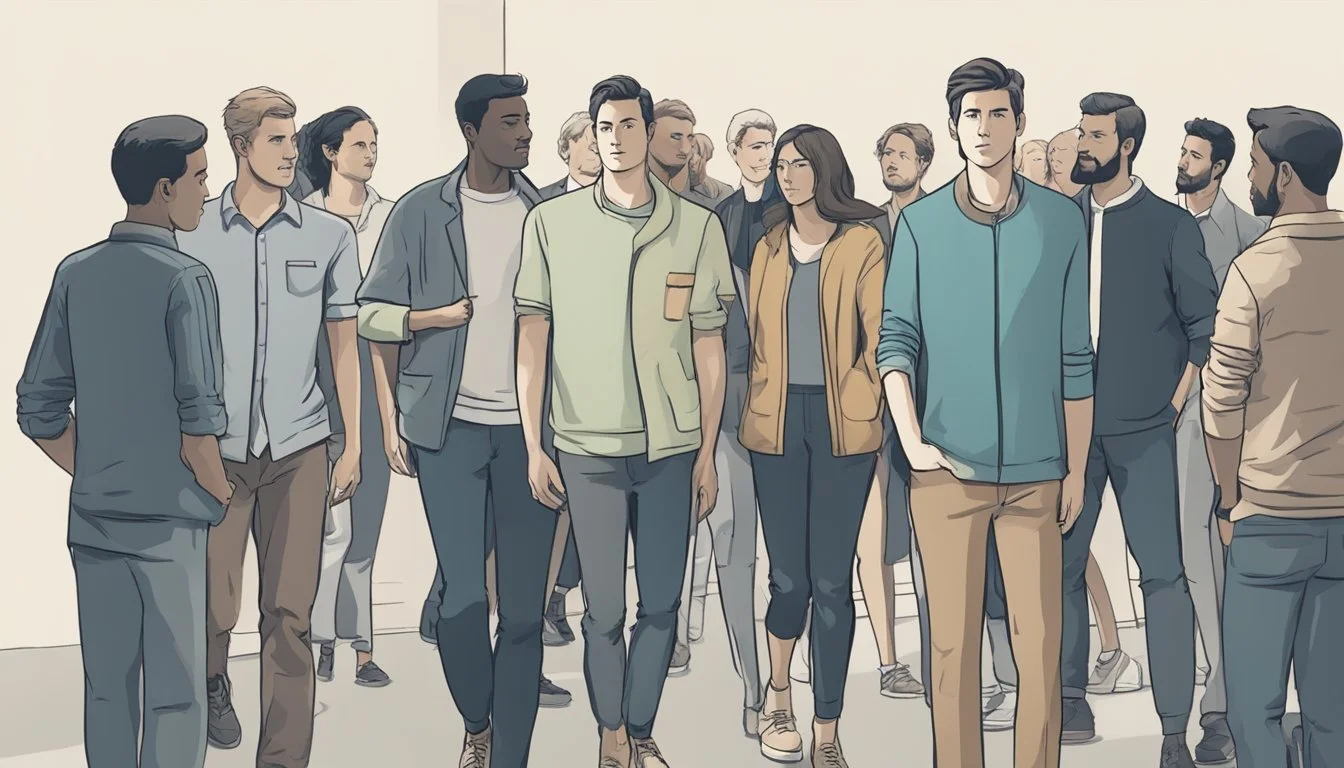11 Ways to Identify a Friend Who Never Reciprocates
Spotting One-Sided Relationships
Navigating friendships can often be a rewarding yet complex journey. When it comes to identifying a friend who never reciprocates, it's crucial to recognize the fundamental signs early on. Understanding these signs not only preserves emotional energy but also helps in fostering healthier relationships.
A friend who never reciprocates can impact one's overall well-being by creating an imbalance in the relationship. By acknowledging these behaviors, individuals can make informed decisions about their social circles and maintain relationships that are both supportive and mutually beneficial.
1) They constantly cancel plans last minute
A clear sign of a friend who doesn’t reciprocate is if they frequently cancel plans at the last minute. Reliable friendships thrive on mutual respect and commitment to shared activities.
Constant cancellations can demonstrate a lack of consideration for the other person's time and feelings. This behavior often leaves the other party feeling undervalued and unimportant.
When cancellations are frequent and without valid reasons, it can be indicative of broader issues in the relationship. It highlights a pattern of neglect and imbalance in the friendship dynamics.
Occasional cancellations are reasonable, but when it becomes a trend, it’s a red flag. Friends who value each other make an effort to keep commitments and communicate openly if plans need to change.
People dealing with such friends might feel frustrated and drained. It’s important to address this behavior directly and set boundaries to maintain a healthy and balanced relationship. Identifying and addressing this pattern early can prevent further disappointments and promote more respectful interactions.
2) They always talk about themselves
A friend who never reciprocates often dominates conversations by talking only about themselves. They steer discussions to focus on their experiences, thoughts, and achievements. Interjecting or shifting the topic can be challenging because they constantly bring the subject back to themselves.
Such friends rarely show genuine interest in others. They seldom ask questions about others' lives or feelings. When others share their experiences, these friends may quickly interrupt to redirect the conversation to their own stories.
They lack empathy, showing minimal curiosity about others. Conversations feel one-sided and draining. They monopolize the dialogue, leaving little room for others to express themselves.
Frequent signs include boasting about accomplishments and seeking validation. This behavior can make others feel unimportant and undervalued.
If you encounter this trait, it's crucial to recognize it early. Addressing the issue directly or setting boundaries can help ensure more balanced interactions. If the behavior continues, it might be a sign that this relationship lacks the mutual respect and consideration fundamental to true friendship.
3) "Friends should always be there for one another" - Aristotle
Aristotle believed true friends are always there for each other. This means mutual support in difficult times, offering help, and sharing joys.
A friend who never reciprocates can fail to be there when needed. They might not offer emotional support or practical help, even when you consistently do.
If a friend only reaches out when they need something, it may be a sign. Aristotle's idea emphasizes a balanced relationship where both parties give and receive.
In friendships, balance is key. Both friends should feel supported. If one person feels left out or taken for granted, it isn't aligned with Aristotle's concept of true friendship.
4) They never ask about your day
When a friend never asks about your day, it suggests a lack of interest in your life. This can indicate they don't value your experiences or well-being. Genuine friends show concern for how you are doing.
A lack of inquiries about your day makes it one-sided. Friendship should involve mutual interest and care. Your feelings and experiences deserve recognition.
Consistent failure to ask can also lead to feelings of neglect. Everyone wants to feel heard and appreciated. Without this, the relationship might seem out of balance.
If they never ask, it's a red flag. Reflect on the nature of your interactions—is it always about them? Address this directly and see if things change. This can help clarify the strength and sincerity of the friendship.
5) They only reach out when they need something
A key indicator of a friend who never reciprocates is when they only contact you during their times of need.
Such individuals often treat friendships as transactional. They may disappear for long periods, only reappearing when they require a favor, advice, or assistance.
This behavior shows a lack of genuine interest in the relationship. They might not check in on you, celebrate your successes, or support you in difficult times.
Friends should be there for each other, regardless of the circumstances. A relationship where one party only reaches out for their benefit lacks the balance necessary for a healthy friendship.
To spot this type of behavior, observe the frequency and context of their communications. Notice if their messages or calls usually have a request attached.
A true friendship should be mutually supportive and engaging, without strings attached or conditions.
6) They don’t celebrate your achievements
A friend who never celebrates your achievements might not value your success. Celebrating milestones, no matter how small, is a hallmark of genuine friendship. They should be happy for you and share in your joy.
If they seem indifferent or react with jealousy, it’s a red flag. Genuine friends want to see you succeed. They understand the importance of support and encouragement during significant moments.
You deserve to have friends who lift you up. If someone isn't able to be genuinely happy for your accomplishments, it’s a sign they may not reciprocate the effort and enthusiasm that a healthy friendship requires.
Moreover, this behavior may indicate underlying insecurities or competitiveness. True friends celebrate your wins without feeling threatened. If your friend consistently downplays or ignores your achievements, it’s worth examining that relationship more closely.
Friends should be your cheerleaders, not detractors. Pay attention to how they react to your good news. Consistent negativity or indifference is a strong indication that they’re not offering the mutual support you deserve.
It’s crucial to recognize and address this behavior. Your successes should be celebrated with those who truly care about your happiness.
7) They rarely, if ever, initiate contact
One clear sign of a one-sided friendship is if your friend rarely initiates any form of contact. This can involve them not texting, calling, or making any effort to keep in touch. Communication is a two-way street, and if you're always the one reaching out, it might indicate a lack of interest on their part.
People may refrain from initiating contact due to social anxiety. Social anxiety disorder can make the idea of reaching out feel overwhelming or intimidating, leading to avoidance. More on this can be understood from resources like Talkafeels, which delves into this issue.
Another reason might be that they take your initiative for granted. They assume you'll always be the one to reach out, removing any perceived need for them to do the same. This can be frustrating and contribute to feelings of being undervalued.
Some friends may not realize the importance of reciprocity in maintaining a healthy relationship. It can sometimes require a gentle nudge or open conversation. Discussing your feelings and needs can help them understand the impact of their behavior on your friendship dynamics.
Friends who rarely reach out might also be preoccupied with their own lives. Busy schedules or personal issues can sometimes take precedence, but continual lack of effort indicates deeper issues.
It’s essential to evaluate if this behavior is occasional or consistent, as constant one-sided efforts can be draining and unsustainable in the long run. Consider exploring strategies to address this and promote more balanced interactions. For additional insights, refer to SocialSelf.
8) They Often Forget Important Dates
One sign of a friend who never reciprocates is their tendency to forget important dates. This could include your birthday, anniversaries, or significant milestones in your life.
When friends care about each other, remembering these dates demonstrates thoughtfulness and connection. Forgetting such occasions repeatedly can indicate a lack of attention and care.
It's understandable if someone misses a date occasionally due to busy schedules or personal issues. However, consistently forgetting important dates suggests that your friendship may not be a priority to them.
Some people may argue that they are forgetful by nature. Yet, genuine friends make an effort to set reminders or write down important dates to honor their friends' special moments.
Additionally, their reactions to being reminded about missed dates can be telling. A friend who values your relationship will likely feel apologetic and make efforts to remember in the future.
Lack of acknowledgment of your important dates can lead to feelings of neglect and imbalance in the friendship. It's worth considering if this pattern aligns with other signs of non-reciprocation.
Friends who remember your significant dates and celebrate them with you contribute positively to the friendship.
9) Their support is conditional
A friend who never reciprocates often shows conditional support. This means they only offer help or encouragement when it benefits them or when it's convenient.
For instance, they might support you during public events for social recognition but are unavailable for one-on-one support. This selective assistance can be frustrating and may make you feel undervalued.
Additionally, their support might come with strings attached. They may expect you to return the favor immediately or leverage their help as a way to manipulate or control situations. This behavior can create an imbalance in the friendship, fostering feelings of obligation rather than mutual care.
Friends who only provide conditional support reveal their unwillingness to invest genuinely in the relationship. It's important to recognize this pattern to maintain emotional well-being and foster healthier connections. For more insights, you can explore ways to deal with non-reciprocative friends.
10) They Frequently Borrow but Never Return
A clear indicator of a friend who never reciprocates is their habit of borrowing items without returning them.
They might frequently ask to borrow clothes, books, or other personal items. Despite repeated reminders, they fail to give them back.
This pattern is not just about forgetfulness. It can indicate a lack of respect for your belongings and time.
When confronted, they might make excuses or promises that they never keep. This behavior can leave you feeling taken advantage of.
To address this issue, consider setting firm boundaries. Let them know that you need your belongings returned by a specific date.
This approach can help determine their respect for your property. If they continue this behavior, it may be time to reevaluate the friendship.
For more insights on this behavior, you can read about why friends borrow things and never give them back.
11) They don’t listen to your problems
A key sign of a friend who never reciprocates is their inability to listen to your problems. When they brush off your concerns or frequently change the subject, it indicates a lack of genuine interest in your well-being.
Such behavior can make you feel unappreciated and unimportant. Friends who value you will listen and offer support when you share your difficulties.
If your friend keeps steering the conversation back to themselves when you are trying to discuss your issues, this is a red flag. True friends know the importance of a balanced relationship where both parties feel heard.
Consistently facing this kind of behavior can lead to frustration and resentment. It's important to recognize this pattern and address it to maintain a balanced and healthy friendship.
For further insight on dealing with people who don’t listen, check out this article on Mind Tools.
Understanding the Dynamics of Friendship
The dynamics of friendship often revolve around mutual effort and understanding. Identifying unbalanced relationships involves recognizing the importance of reciprocity and common signs that friendships might be one-sided.
The Importance of Reciprocity
Reciprocity forms the backbone of any strong friendship. It involves an equal exchange of support, trust, and care between friends. When both parties reciprocate, the relationship flourishes and becomes more meaningful.
Non-reciprocation can indicate underlying issues, such as a lack of interest or emotional availability. These issues, if not addressed, often lead to resentment and dissatisfaction.
It's essential to communicate openly when you feel that your efforts are not being met. Addressing this directly can offer insights into your friend's perspective and help realign the relationship’s balance.
Common Signs of One-Sided Friendships
One-sided friendships exhibit several telltale signs. Consistently initiating contact without receiving it in return, for instance, points to a lack of reciprocity. Similarly, feeling emotionally drained after interactions is a red flag.
Friends who seldom acknowledge your achievements or fail to provide support during tough times might not value the relationship equally. This behavior can create feelings of neglect and frustration.
Assessing how often your friend makes an effort to spend time with you or check in on you can reveal a lot. A healthy friendship involves both parties taking an interest in each other’s lives, rather than a one-sided effort.
Psychological Impact of Non-Reciprocating Friends
Friendships lacking reciprocity can have significant psychological impacts. Experiencing this imbalance often leads to emotional distress and long-term effects on a person's self-esteem.
Emotional Toll on the Reciprocating Friend
Non-reciprocating friendships can cause frequent feelings of frustration and sadness. The friend who continually puts in effort may feel unappreciated and isolated.
This emotional imbalance can result in the reciprocating friend experiencing anxiety and self-doubt. Constant thoughts like, "Am I not good enough?" or "What am I doing wrong?" can plague their minds. This distress isn't just fleeting—over time, it can develop into more severe emotional issues.
Strained emotional resources also make it difficult to engage in other healthy relationships. The ongoing hurt and rejection erode trust in future friendships, leading to a guarded, hesitant approach in making new friends.
Long-Term Effects on Self-Esteem
The repeated failure to receive equally invested effort from a friend can deeply impact one's self-esteem. Non-reciprocating friendships send a harmful message that one's efforts and feelings are not valued, which can erode self-worth.
Individuals in such friendships might start internalizing lack of reciprocation as a personal flaw. This can result in chronic low self-esteem, making them feel inadequate in various areas of their lives. For instance, they may struggle to assert themselves in social or professional situations, doubting their value and contributions.
Prolonged exposure to such dynamics can lead to more severe mental health issues, including depression. Reduced confidence and pervasive feelings of unworthiness extend beyond just friendships, impacting overall quality of life and personal growth.
Strategies to Address One-Sided Friendships
This section delves into effective communication techniques and the importance of setting boundaries and expectations to manage and improve one-sided friendships.
Effective Communication Techniques
Open and honest dialogue forms the foundation of any healthy relationship. When addressing a one-sided friendship, it's essential to communicate your feelings transparently. Avoid making accusations or using blameful language. Instead, use "I" statements to express how the imbalance affects you, such as "I feel undervalued when my efforts aren't reciprocated."
Active listening is equally important. Pay attention to your friend's perspective and ensure they feel heard and understood. This can help foster mutual respect and understanding. Setting up regular times for discussion can also ensure that both parties have space to share their thoughts and concerns.
Regular check-ins can maintain engagement and show that you value the relationship. Lastly, leveraging technology for video calls or messages can bridge gaps, especially in long-distance friendships. A collaborative approach to addressing the issues can strengthen trust and move the relationship toward a more balanced and fulfilling dynamic.
Setting Boundaries and Expectations
Establishing clear boundaries is vital in reducing the effects of a one-sided friendship. Define what behaviors are acceptable and ensure these limits are well-communicated. Setting boundaries can include deciding how often to communicate or the type of support expected from each other.
Setting realistic expectations can also prevent future imbalances. Make clear what you can and cannot offer within the friendship. Mutual agreement on these expectations can reduce misunderstandings and ensure both parties feel valued and respected.
Take breaks if necessary. Sometimes stepping back allows both parties to consider the friendship's health and how adjustments can be made. Encourage diversifying social interactions to relieve pressure from one relationship. By respecting each other's space, friendships can become more balanced and enriching.











